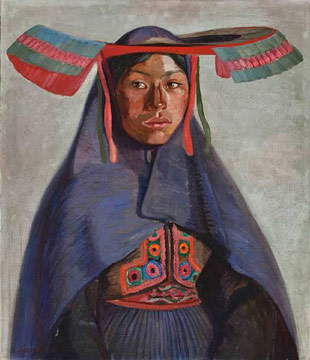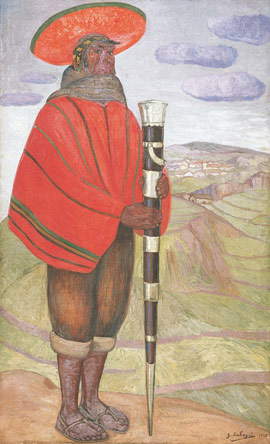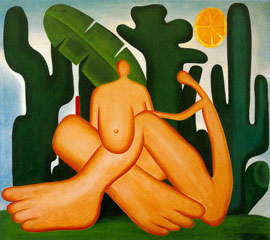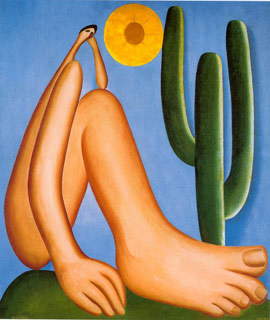In this article written by Pilar Turu and published in Cultura Colectiva, it is shown, through some works of art, how important it is for Latin America to redeem the past for the creation of a national identity. I have translated it for you! Here is the link to the original.
 |
| José Sabogal, India del Collao |
In Latin America, the colonizer, who arrived in the new land without knowing or understanding it, wanted to change everything on his passage, impose hierarchies as well as his religion. Discovering a new continent gave him the opportunity to impose his own precepts of good and proper, thus erasing from the collective imagination all the original issues of Latin American countries.
Beginning in the twentieth century, there arose in America the need to change patterns, to question the way it is perceived both externally and in the Americans’ own identity; and it is through art that these needs began to be addressed.
The representations of artists such as Tarsila do Amaral, José Sabogal, or Pedro Figari seek the revalorization of past culture as a justification in the present of pride in their land and roots.
 |
| José Sabogal, Varayoc, 1925 |
In his works, José Sabogal dignifiedly elevates the indigenous Peruvian, binds him to the land in a way that makes him seem unshakable, uncolonizable, pure. On the eve of modernity, he takes this seemingly lost character, child of the earth, to bring him closer to the canvas and show us how Europeanization has passed almost without touching certain individuals, rooting them even more to the land.
Why is it important now to redeem the indigenous? Because ever since the conquest, the indigenous person has been increasingly considered an outcast, gradually reducing his image to almost nothing. In the eyes of Europeans, he went from being a master to being a worker of the land. These works are extremely valuable as a redemption of the exotic and as an ennobling of the Indian, as well as for their emotional charge.
In Brazil, with the work of Tarsila do Amaral, the search for national identity is reflected in Anthropophagy. The artist works on the theme of the redemption of the original culture, which is in itself pure, sensitive and not an imitation of reality, even if created in a modern language.
 |  |
| Tarsila do Amaral, Anthropophagy, 1928 | Tarsila do Amaral, Abaporú, 1928 |
Another example is Pedro Figari’s work, Pericón en el patio (ndt: Pericón in the courtyard, pericón is an Argentine and Uruguayan folk dance). In this case, the setting of the work is invaded by the traditions of Uruguayan culture, where one appropriates the past in order to understand what one is in modernity. The tree represented is called ombú and refers to the past and its traditions, since, since ancient times, the healing properties of this plant have been known.
| Pedro Figari, Pericón en el patio |
With modernity came the opportunity in Latin America to proudly represent the values of the past, allowing the artist to develop his freedom of expression and to appreciate himself what had been lost and devalued for years.
Only by starting from the past can we understand what we are in the present, and that is why it is essential to redeem traditions and customs in the process of creating a national identity; all this can be achieved by starting with art.
Warning: the translation into English of the original Italian article was created using automatic tools. We undertake to review all articles, but we do not guarantee the total absence of inaccuracies in the translation due to the program. You can find the original by clicking on the ITA button. If you find any mistake,please contact us.